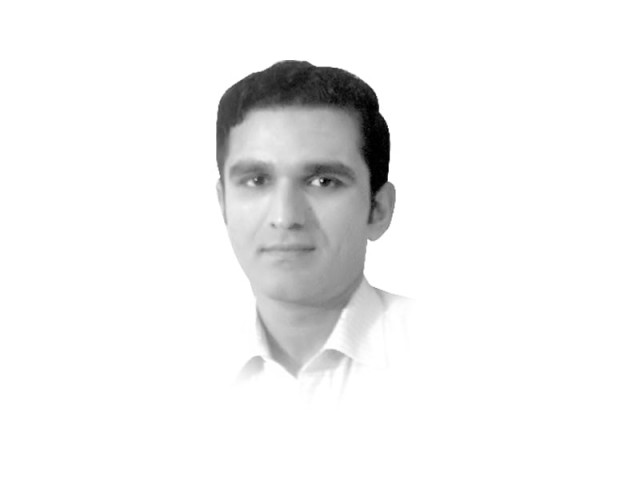The death of logic
Chaos in society is clearly reflected in the way our traffic runs, and in way we tolerate extremism in the country.

The death of logic
Let me illustrate it with a simple example. Almost everyone reading this article should be familiar with the traffic signal and should also know that when the light is red one should stop — every student is taught this in class one or two at least. But everyone is also familiar with the fact that almost no one voluntarily stops at the red light. Only the sight of the traffic warden and the traffic deter people. Everyone is also, perhaps, familiar that generally a motorcyclist hardly ever takes notice of any traffic rule and goes wherever he wants with audacity. People are also aware that in a traffic accident, the person who is on the cheaper mode of transport quickly gets the upper hand regardless of the fact whether he is the victim or not. So, in a situation where a car is travelling on the road after passing a green light and is hit by a motorcyclist who has just violated a red light, the car driver is held accountable — primarily because he is in a car. The fact that the motorcyclist has broken the traffic signal and is responsible makes no difference.
What is the reason behind the abovementioned scenario? Some people might argue that it is the lack of education. However, it is not really the case. I cannot say about other areas, but the vast majority of motorcyclists and car drivers in Lahore, at least, have some education. Whether drivers have their driving licences or not — which they should have — they should already know that violating a traffic signal is not only wrong, but also dangerous. So, education has really nothing to do with it. Then, one can argue that it is the ‘culture’. If there is a cultural explanation for this, then surely it is a recent development. There is clear evidence that Pakistanis did generally follow traffic rules in 1947, and even until the 1970s. Also, if we see India, people there are still more observant of traffic rules (comparatively) than Pakistanis. At least every motorcyclist I saw in Delhi, recently, wore a helmet, which is obviously for their own protection, but the benefit that helmets provide is lost on their Pakistani counterparts.
The reason why we do not follow traffic rules now, I believe, is emblematic of a larger loss of logic in Pakistan. So, a Pakistani motorcyclist does not believe that wearing a helmet is for his own good; he largely sees it as an annoying extra, but if he falls and gets a head injury, it is someone else’s fault. If people in India recognise this, then it simply cannot be ‘culture’ and a sign of a more significant change.
Let me end with another recent example. Except for my former teacher Ejaz Haider, very few people have pointed out the basic illogical stance of the religious right in Pakistan. Most people have simply accepted the basic premise of the right that ‘the killing of an innocent is wrong’. While on the face of it, this statement sounds logical, but as pointed out by Ejaz, this statement is not only illogical but dangerous. The killing of any person by anyone, except the state and under the law is wrong. No one has the right to declare anyone guilty or innocent and kill someone. Just imagine, if Malala were guilty according to these people, would her killing by the Taliban be justified?
This ‘death of logic’ is symbolic of the general break-up of society in Pakistan. The chaos in society is clearly reflected in the way our traffic runs, at the very least, and in the way we tolerate extremism in the country. We have become a country where we are oblivious to a few people being killed in Karachi every day, where pseudo-religious scholars can theorise the justification of the attempted murder of a little girl on prime time television, and where the rule of law is almost absent. It seems that Thomas Hobbes wrote this just yesterday about Pakistan that the life of man in Pakistan is “solitary, poor, nasty, brutish, and short”.
Correction: An earlier version of this article had incorrectly stated John Locke instead of Thomas Hobbes. The correction has been made.
Published in The Express Tribune, October 16th, 2012.













COMMENTS
Comments are moderated and generally will be posted if they are on-topic and not abusive.
For more information, please see our Comments FAQ